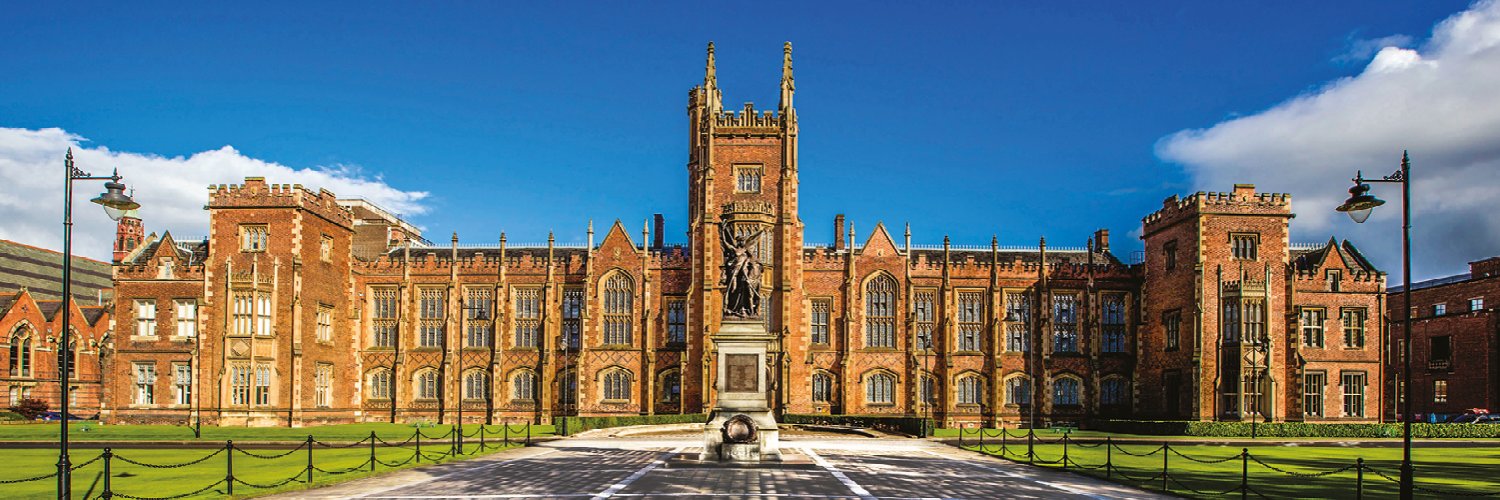Sociology PhD
Overview
You’ll be a social scientist committed to ways of working, through multidisciplinary research, that build knowledge and capacities in the communities around us and have a positive impact on human wellbeing. You’ll care about young people and families, conflict and social change, social inequality, disability, aging and health, criminal justice, drugs and alcohol, trauma, violence and abuse and the effect these have on society.
Staff in the School of Social Sciences, Education and Social Work publish world-class research which has a local and global impact. Our funders and partners include the research councils, government departments, the EU, Council of Europe and the large foundations. School research is informing thinking and the development of policies in many areas including the well-being of children, social cohesion and mental health. Key interdisciplinary research themes in the School include:
HEALTH, WELL-BEING AND INCLUSION
Research under this theme focuses on the health and well-being of children, young people and adults in schools, the community and in institutions such as prisons. Our research relates to issues as diverse as substance abuse, socio-economic inequality, disability and inclusion, social emotions and the formation of identity, as well as undertaking evaluations of interventions programmes designed to improve health and well-being outcomes, and the inclusion of people marginalised by inequality and injustice.
CHILDREN, YOUNG PEOPLE AND FAMILIES: POLICY AND PRACTICE
Research under this theme explores the development of children and adolescents into young adulthood in their full social and structural contexts. A particular focus of our work in this area is improving social policies and social work interventions into the lives of families and young people. This multi-disciplinary research draws on a range of theoretical and methodological traditions with an overarching social justice ethos.
CRIME AND CRIMINAL JUSTICE
Research under this theme explores the antecedents of offending behaviors across the life course with an emphasis on the impact of traumatic life events and structural inequalities. The research also seeks to better understand the behaviours of criminal justice and other systems for their role in controlling or exacerbating this offending. The overarching social justice perspective that characterises this work situates these questions in the wider sociopolitical contexts in which they occur.
PEACE IN SOCIETIES
Research under this theme seeks to understand the sources, manifestations and impact of ethno-religious, national and social divisions in divided and transitioning societies, and the nature and effectiveness of efforts to build peace. Our particular interests relate to underpinning theories of conflict, the role of religion in divided societies, the impact of growing up in a divided society, the role of education and schools in promoting more positive intergroup relations in deeply divided socieities, shared education, and issues relating to identity, culture and inclusion.
EDUCATION: ADVANCING UNDERSTANDING, IMPROVING OUTCOMES
Research under this theme focuses on education in schools, further and higher education, and on how to improve educational opportunities and outcomes. Our research encompasses issues relating to curriculum, pedagogy, assessment, inclusion and
identity, and includes, for example, the effectiveness of literacy and numeracy programmes; peer tutoring and cooperative learning; teacher education; the nature of identity and authorship in higher education; teaching English to speakers of other languages and applied linguistics; digital literacy studies; children’s rights; and Applied Behaviour Analysis. As in other strands, the research is informed by diverse and innovative research methodologies and methods such as random control trials, interventions and programme evaluations, participatory action research, writing practices and knowledge production, and systematic reviews.
Campus Information
Belfast
STATE OF THE ART FACILITIES Across health sciences laboratories, business, engineering and computing. Including a financial Trading Room with Bloomberg terminals, interdisciplinary health and life sciences research facilities and innovative engineering hubs.
Intakes
- Sep
Application Processing Time in Days: 30
Application Process
Minimum English Language Requirements
| English Level Description | IELTS (1.0 -9.0) | TOEFL IBT (0-120) | TOEFL CBT (0-300) | PTE (10-90) | |
|---|---|---|---|---|---|
| Expert | 9 | 120 | 297-300 | 86-90 | |
| Very Good | 8.5 | 115-119 | 280-293 | 83-86 | |
| Very Good | 8 | 110-114 | 270-280 | 79-83 | |
| Good | 7.5 | 102-109 | 253-267 | 73-79 | |
| Good | 7 | 94-101 | 240-253 | 65-73 | |
| Competent | 6.5 | 79-93 | 213-233 | 58-65 | |
| Competent | 6 | 60-78 | 170-210 | 50-58 | |
| Modest | 5.5 | 46-59 | 133-210 | 43-50 | |
| Modest | 5 | 35-45 | 107-133 | 36-43 | |
| Limited | 4 | 32-34 | 97-103 | 30-36 | |
| Extremely Limited | < 4 | < 31 | < 93 | < 30 |
Job Opportunity Potential
The Queen’s Careers Team are here to support students and graduates with all aspects of career planning and decision making.
We’ll help you set career goals, communicate your worth to employers and equip you with the skills you need to stand out in the competitive global job market. The skills we help you build, will benefit you forever.
What type of support do we offer?
We can help you with everything from building a career plan to engaging with employers, refining your CV or perfecting an application.
We can also support you to secure placements, work experience or study abroad opportunities. Our diverse range of employability programmes and events are designed in consultation with industry to help you lead, achieve, develop and succeed.
Book a programme or event
SUPPORT FOR GRADUATES
Have you graduated recently? Have a look at our graduate resources, such as recorded webinars from our recent Gradfest events and GradGuides, to help you achieve your personal development goals and enjoy career success.
Access our services
In the below sections, you’ll find online tools and resources to help with your career planning, along with information advice and support on a host of careers-related topics. Can’t find what you need
Take part in an event or programme
From employer panels to Careers fairs, discover our virtual activities for autumn 2020
Access advice on CVs and Interviews
From writing the perfect cover letter to nailing a virtual interview, we're here to support you through the job application process.
Find a job through MyFuture
Whether you want to find part-time work on campus, an internship or a graduate role, MyFuture is your go-to jobs board.
Develop your employability
We have collated a range of online resources to help you develop and enhance the skills that employers are looking for.
Make your extra-curricular activities count with DegreePlus
Our employability award lets you gain recognition for work-related experience you gain during your time at Queen's.
PSW Opportunity
2 Years PSW is applicable after the course completing (Bachelors level or above)
Admission Requirement / Eligibility Criteria
Graduate
The minimum academic requirement for admission to a research degree programme is normally an Upper Second Class Honours degree from a UK or ROI HE provider, or an equivalent qualification acceptable to the University. Further information can be obtained by contacting the School of Social Sciences, Education and Social Work
ENGLISH LANGUAGE REQUIREMENTS
Evidence of an IELTS score of 6.5, with a minimum of 6.0 in Speaking and Listening and a minimum of 5.5 in Reading and Writing, or an equivalent qualification acceptable to the University, is required. Taken within the last 2 yrs.
- Course Type: Full Time
- Course Level: Doctoral Degree/PhD
- Duration: 03 Year
-
Total Tuition Fee:
52380 GBP
Annual Cost of Living: 9207 GBP
Application Fee: N/A

